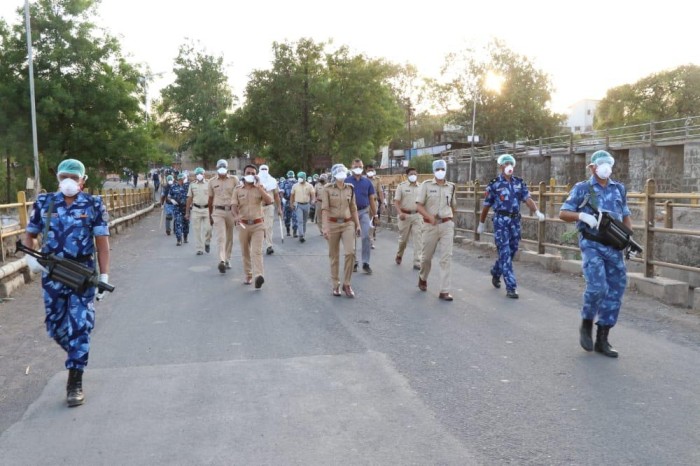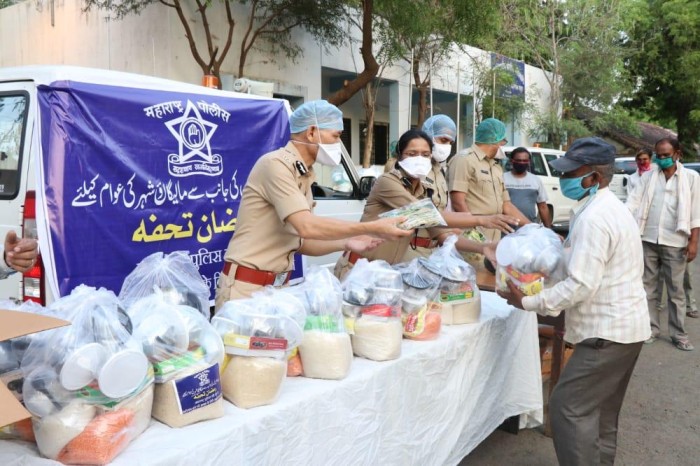Standing in the gynaecology ward of the Institute of Medical Sciences BHU, a freshly graduated Dr Arti Singh tried to understand the bizarre question new mothers asked right after delivering their babies.
“What is the gender of the baby?” they asked instead of inquiring about its health.
Despite growing up in the rural setting of Uttar Pradesh’s Mirzapur, Arti was never subjected to gender discrimination so hearing such comments in a fairly progressive city of Varanasi was shocking.
This was an everyday phenomenon and something that she desperately wanted to change.
Two years later in 2006, Dr Arti cleared the Union Public Service Commission (UPSC) Civil Service Exam (CSE) and got into the Indian Police Service (IPS) to change the fate of newborn girls.
“A major reason why families prefer a male child is because he does not need to be protected. Most conservative parents think society is dangerous for girls and the only way to ensure their safety is marriage which inevitably brings in the issue of dowry and child marriage. To eradicate these problems from the grassroots I joined UPSC. I wanted to be a part of the solution,” Dr Arti, India’s only woman Commissioner of Police (at present), tells The Better India.
A mother of two daughters, Dr Arti was not afraid to change her career so when she got the opportunity to work in the Naxal-affected Gadhciroli district in Maharashtra, she grabbed it. Years later, when she was asked to shift her base to the state’s coronavirus hotbed region of Malegaon, she did not bat an eyelid.
A daredevil in every sense, Dr Arti broke glass ceilings at every point, proving that gender differences are only a concept that exists in people’s minds.
‘Challenges don’t scare me.’
When neighbours and relatives questioned Arti’s parents on why they were ‘allowing her’ to study so much and even opt for a career switch instead of finding a suitable match, her parents shut them down.
“My father always had faith in me and wanted me to do what he couldn’t. This support is probably what gave me the confidence to take risks, whether it was moving away for studies, switching careers without any guarantees or reappearing for UPSC twice despite getting into railways. So when I was told that female officers and some males too refused to go to the Naxal-affected region, I didn’t get scared. I was ready to break another notion,” says Dr Arti, a 2006 batch officer.
Whether it was her subordinates or seniors, everyone was shocked to see Dr Arti in the Red Corridor, an area where police-Naxal encounters are common.
However, the timing of her posting made the situation tougher for her. The year was 2009 when state and central elections were about to be conducted. The Naxals had warned the villagers against voting and they had already killed 17 cops when she arrived.
Taking the challenge head-on, she not only ensured smooth execution of the elections but also recovered arms and ammunition.

“I was posted in the remotest region of Gadchiroli where there was only one road that led to the police station. During monsoons, the bridge would shut, making the outside world, telephones, electricity and even newspapers inaccessible. Working in such conditions while getting constant threats and maintaining law and order was hard,” she recalls.
She stayed in the region for three years and exercised her duties efficiently. She was felicitated by both, the State and Central government for her services. The Director General’s office gave her the prestigious DG Insignia award that is generally given to the policemen after 15 years of service.
Dr Arti has been posted across four districts of Maharashtra and at present, she is posted in Amravati as the city Police Commissioner.
Her recent stint in controlling the spiralling coronavirus in 2020 also won her accolades and recognition from the government.
Malegaon, a highly sensitive area due to communal tensions, recorded over one lakh COVID-19 cases in July last year. The textile town with a population of over 7.5 lakhs even saw instances of people falling into the trap of a religion-led virus.
Dr Arti moved to the town for two months to curb the coronavirus situation while maintaining law and order.
“Everyone, including my force, was demoralised after the police were infected with the virus. We made sure people stayed indoors and I tried explaining the grim reality as a doctor rather than an IPS officer. We also had to curb the menace of Whatsapp forwards and TikTok videos that indulged in threatening religious harmony,” says Dr Arti.
Dr Arti was quick to speak to religious leaders to dispel myths. She even arrested those who were spreading rumours. Another notable work she did was to restart power looms on which jobs of the majority of Malegaon people depended.
“Raw materials come from the South and finished goods are exported to Gujarat and Rajasthan. We spoke to the two Chief Ministers and ensured the movement began again,” she adds.
As per a report by India Today, Malegaon’s recovery rate was 82 per cent and the Indian Council of Medical Research (ICMR) asked the state government to study the ‘Malegaon model’.
‘What makes my job satisfying…’

Dr Arti Singh often has to stay away from her two daughters, aged 4 and 10, due to her demanding job. She has faced enough biases at the workplace and is often reminded that a female officer is not as good as her male counterpart.
When she was posted as the CP, a journalist even told her that he did not have ‘much expectation’ from her. The deep-rooted misogyny, even in 2021, that Dr Arti faced was appalling.
But despite the hardships and risks that her job entails, Dr Arti declares she loves her job. It is the small but significant milestones that keep her going.
“That same journalist visited me post-pandemic and said that no one else would have been able to curb the virus the way I did. This change in mindset is what I had originally set out to achieve. As for gaining trust from my colleagues, I give it a month. I let my actions and expertise speak for themselves,” says Dr Arti, adding, “Staying away from my kids is never going to get easy but that is something I just have to deal with.”
Of the many instances, she distinctly remembers the time when she was able to solve a cybercrime and return the stolen money to a family. The family was moved to tears and everyone in the neighbourhood felicitated her.
“In another instance, we reunited a kidnapped 3-year-old with his parents within two days, and the next day we saw people marching into the police station to thank us. Such instances go a long way in building the image of the police and I couldn’t be happier to be a part of it,” she adds.
(Edited by Yoshita Rao)
No comments:
Post a Comment